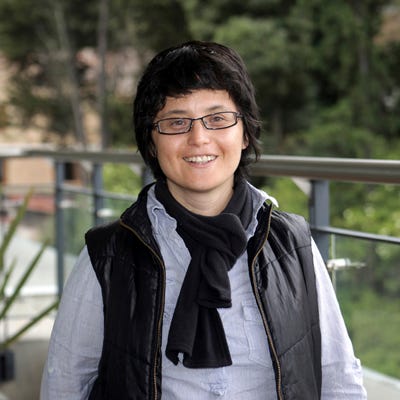Dr. Alba Ávila is an Associate Professor at the University of the Andes in Colombia, who specializes in teaching and research in nanotechnologies. She was one of the experts in nanotechnologies, who helped organize and chair sessions at the Nanosafety Regional Workshop for the Latin America and Caribbean Region, which was held in Bogotá, Colombia in 2015.

Nanotechnology is a growing industry poised to create an array of economic and social benefits worldwide, while potential risks to human health and the environment are, to date, not fully known. With numerous nano-containing products now available in the marketplace and an increasing amount of research into new uses for nanomaterials being conducted every year, the need for regulations and safety standards have become increasingly important.
The workshop, that Dr. Ávila participated in, was one of the three regional workshops organized by UNITAR, in partnership with the Organisation for Economic Co-operation and Development with financial support from the Government of Switzerland. These workshop were intended for professionals working nationally or regionally in the nano field. The Latin American regional workshop hosted thirty stakeholders from 11 countries, representing government, academia, regulatory bodies, NGOs, and industry.
Dr. Ávila stressed the need for national and regional governments as well as academics to work towards creating appropriate nanomaterials handling, research and disposal safety protocols. She said
“The experts in the field of nanomaterials at the workshop shared information about what they were working on in their own labs and their own countries. They also shared concern with how we could get national and regional policies created and implemented.”
“The group also collectively identified current gaps in human resources and policy issues,” she continued, “and discussed initiatives regarding governmental and academia strategies for planning and decision making. I found the networking nature of the workshop significantly beneficial because many participants were able to discover more about each other’s working facilities, and learn about the 4 research centers and networks located around Latin America.”
As an outcome of the workshop, a list of 12 nanomaterials were documented as being used in the region. Furthermore, after the workshop, a group from the Andes University developed the Nano Materials Risk Application (app) making it easy to find information whenever researchers need it, following an interest shown by the participants of the workshop to develop means of accessing information about nanomaterials safety for those working in the labs.
The app is available in English and Spanish and can be used on a computer, tablet or mobile device. Dr. Ávila highlighted that,
“Since our app became available, we have seen users from 10 different countries using it. Through the app, it has created a new network for stakeholders to collaborate in order to promote safety practices for nanotechnologies.”
Even more of a sign of success came when organizations began using the goals developed at the workshop to create specific programmes for research, and when researchers began citing the report in peer-reviewed papers and using it in presentations at other conferences.
Dr. Ávila says that, “Even after the workshop organized by UNITAR, I continue to promote safety in nanotechnologies regionally as well as internationally. For example, I attended the International Conference on Chemicals Management in Geneva in 2015, where I represented the Latin America and Caribbean region in international discussions.”

